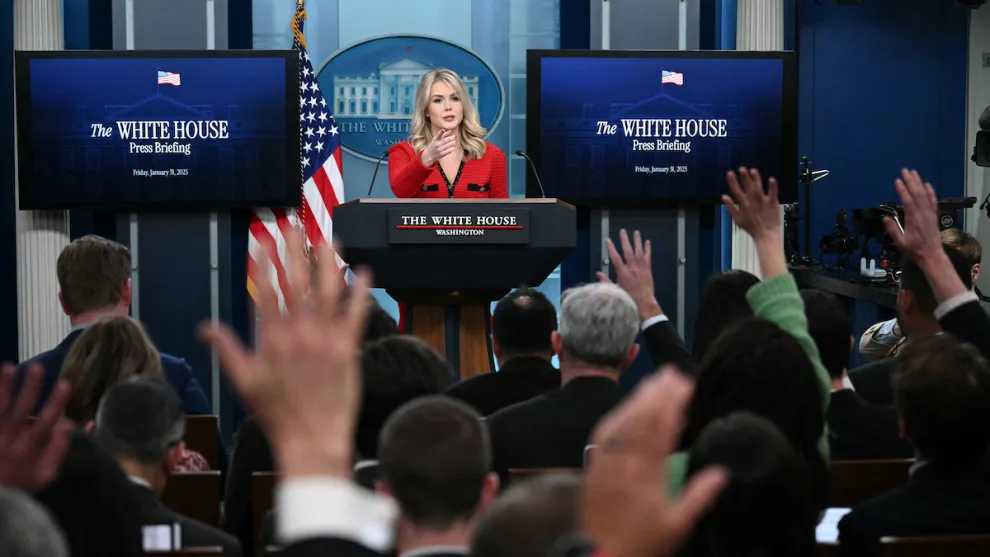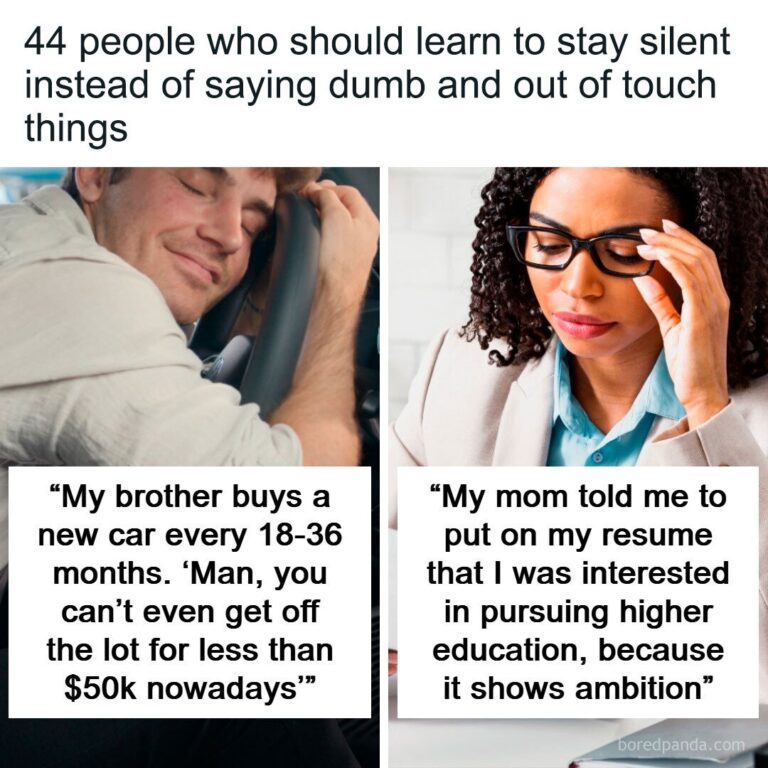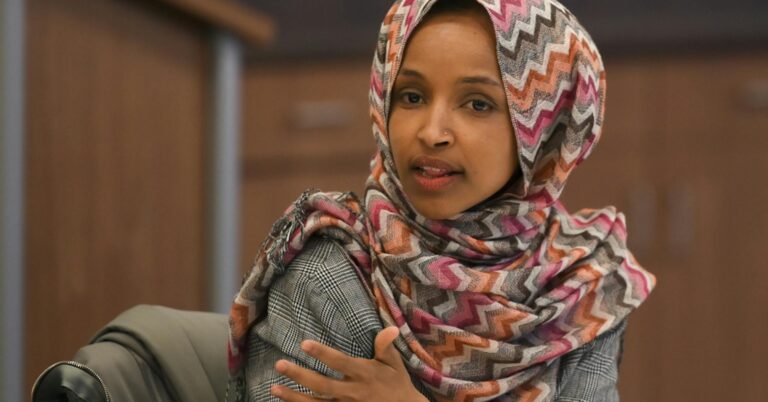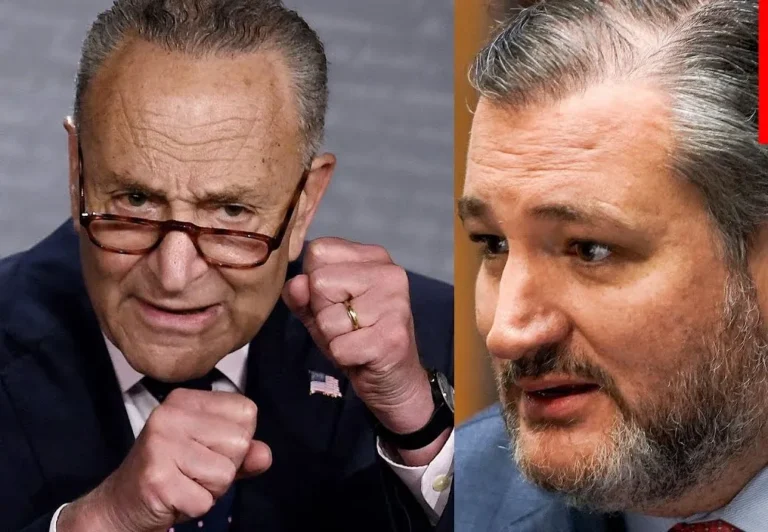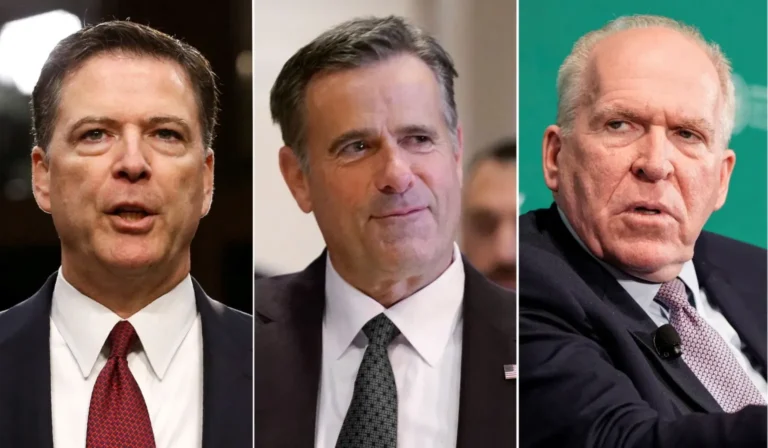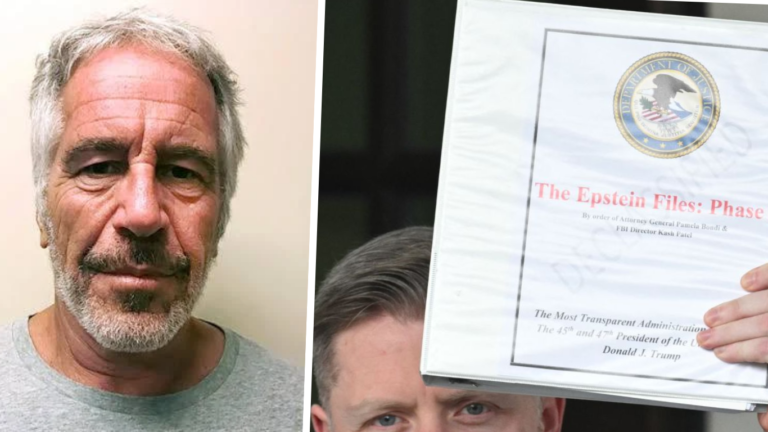BUSTED: Reporters Caught Spying on Karoline Leavitt’s Closed-Door Call With…
The Trump administration has drawn a clear line between responsible journalism and political espionage. On Friday, President Donald Trump’s White House officially barred reporters from accessing a key section of the West Wing—known as the Upper Press—without prior approval.
The move follows mounting evidence that members of the mainstream media had been eavesdropping on private cabinet discussions and secretly recording sensitive material.
For years, the so-called “press freedom” crowd has used their credentials as a license to invade privacy, twist quotes, and undermine the President’s agenda. But under Trump’s leadership, that era of unchecked access and deep-state leaks appears to be ending.
The new order, issued by the National Security Council and enforced by White House Communications Director Steven Cheung, states that no reporter may enter the Upper Press without an appointment. The memo cited “the protection of sensitive material from unauthorized disclosure,” an objective most Americans would find not only reasonable but essential.
Cheung, known for his no-nonsense defense of the administration, revealed that this decision wasn’t made lightly. “Cabinet secretaries were being ambushed and secretly recorded by reporters lurking outside private offices,” he said. “It’s an unacceptable breach of trust.”
White House Press Secretary Karoline Leavitt, one of the most dynamic figures in the administration, has become a target for left-leaning journalists desperate to manufacture controversy. Sources confirm that several mainstream reporters were caught “hovering” near her office door—listening in during confidential cabinet meetings.
Cheung posted on X, formerly Twitter, that some of these reporters had even taken unauthorized photos of classified briefing materials. “We’ve had to chase reporters down who started strolling into restricted areas towards the Oval. Total absence of boundaries,” he wrote.
This isn’t a crackdown on the free press—it’s a defense against a press that’s gone rogue. For too long, major outlets like CNN, The Washington Post, and The New York Times have blurred the line between journalism and sabotage. Trump’s team is drawing that line again.
The new restrictions apply only to the Upper Press, the area adjacent to the Oval Office and Press Secretary Leavitt’s workspace. Journalists will still have full access to the Lower Press section near the briefing room. That means legitimate reporting isn’t being silenced—it’s being held to professional standards.
The decision follows other necessary reforms implemented by the Trump administration to restore order and discipline in government communication. Earlier this month, several outlets—including AFP—refused to comply with updated Pentagon press guidelines designed to protect classified material.
Rather than adapt, these same outlets are now crying “censorship.” But the reality is simpler: President Trump is putting national security above media theatrics.
For years, legacy media have operated like a political class of their own—waltzing through restricted areas, pestering staff, and mining private conversations for clickbait. When Trump first took office in 2017, he promised to expose the rot in Washington. Now, with his return to the White House, he’s making good on that promise once again.
Insiders say that the National Security Council’s new structure, which Trump placed under the leadership of Secretary of State Marco Rubio, has increased the sensitivity of information handled in the West Wing. The need for tighter access is both logical and overdue.
The incident that triggered this move reportedly occurred after reporters were caught eavesdropping during a closed-door meeting with Leavitt and a visiting cabinet member. Witnesses claim the individuals were literally pressing their ears to the door—an act that would be unthinkable under any prior administration.
“This isn’t journalism; it’s espionage,” one senior official remarked privately. “If any conservative reporter had pulled something like that during the Obama years, they’d have been escorted out in handcuffs.”
The media’s meltdown over the new rule only exposes their arrogance. For decades, they’ve acted as though the White House was their playground. But under Trump, the people’s house is once again being protected for the people—not the pundits.
Leavitt herself has taken the attacks in stride. A rising star within Trump’s circle, she has faced relentless harassment from leftist journalists since stepping into the role. Despite that, she continues to deliver sharp, confident briefings that highlight the administration’s achievements—from freeing American hostages to restoring order on the southern border.
Many conservatives have applauded the move, saying it’s about time the White House stopped rewarding bad behavior. “If you can’t respect basic security rules, you don’t belong anywhere near the President’s staff,” one commentator said on Truth Social.
Meanwhile, liberal reporters are crying foul, framing their restriction as an “attack on democracy.” But Americans aren’t buying it. Polls show record-low trust in mainstream media, with many citizens agreeing that the press has become little more than a propaganda arm for the left.
Trump supporters see this as another victory in the fight to drain the swamp—not just in government, but in journalism. As one viral post put it: “They spied, they lied, and now they’ve been denied.”
